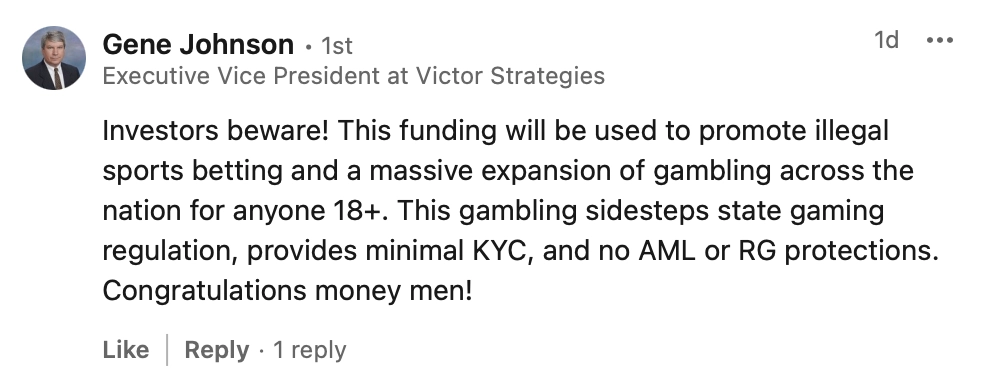The $185 million Series C funding round is led by crypto-focused venture capital firm Paradigm with participation from Sequoia, Neo and Bond Capital.
Kalshi received a valuation of $2 billion after the prediction market disclosed a new $185 million funding round earlier this week.
The Series C funding round was led by Paradigm, a crypto-focused venture capital firm. Other participants included Multicoin, Sequoia, Neo and Bond Capital. Citadel Securities CEO Peng Zhao also participated in the round.
People choose to work at Kalshi not because of the money weve raised, but because of our ambition: build the most important financial market on the planet, Kalshi CEO Tarek Mansour wrote on his X page in announcing the funding and valuation.
Kalshi announced the funding round one day after reports surfaced that Polymarket had neared a funding round of its own. Bloomberg reported on 24 June that Polymarket is close to finalising an investment of more than $200 million from Peter Thiels Founders Fund. The round will value Polymarket at approximately $1 billion, Bloomberg reported.
Despite being banned in the US, Polymarket received trading volume in excess of $2.5 billion last November during the US presidential election.
Both Kalshi and Polymarket offered event contracts on the Democratic primary of the New York City mayoral election earlier this week.
Shortly after polls closed on Tuesday night, an event contract on Kalshi gave State Assemblyman Zohran Mamdani a 99% chance to win the nomination. Mamdani defeated former New York Governor Andrew Cuomo in a slight upset.
X, the social media platform formerly known as Twitter, announced on 6 June that it had reached a deal with Polymarket. Under the deal, Polymarket became the official prediction market partner of X.
Polymarket ensures transparency through its prediction markets, and has grown into a staple source of real-time information for many X users, said Linda Yaccarino, who serves as CEO of X. We are pleased to partner with Polymarket and look forward to bringing our data and technology to Polymarket users through a range of creative product integrations.
Last month, Kalshi began posting event contracts for Week 1 of the NFL regular season. While Kalshi offered various contracts on the NFL playoffs, the contracts were not available for the majority of the 2024 regular season. Kalshi also offered event contracts on March Madness, leading to a cease-and-desist order issued by the New Jersey Attorney Generals Office.
Event contracts on sports have been the subject of intense debate over the first half of 2025. Kalshi believes the contracts are permissible on the federal level through regulations by the US Commodity Futures Trading Commission. Brian Quintenz, the nominee to become next chairman of the CFTC, has pledged to leave his position on the Kalshi board of directors if he is confirmed.
At a Senate confirmation hearing this month, Quintenz told the Committee on Agriculture, Nutrition and Forestry that he believes the law is very clear in terms of the application of the Commodity Exchange Act (CEA) on event contracts.
More specifically, Quintenz noted that the CEA recognises that an event that poses financial, commercial or economic consequences should be considered a commodity. Pressed by California Senator Adam Schiff on a tribal position that federally regulated event contracts may usurp tribal sovereignty, Quintenz responded that he does not believe anything in the CEA precludes the tribes from offering the contracts.
Earlier this spring, the CFTC cancelled a highly anticipated roundtable on the implications of regulating prediction markets. During the hearing, Quintenz pledged to reschedule the roundtable before the CFTC issues any guidance on the subject.
Tribal opposition continues to dominate the prediction market debate. On 19 June a tribal coalition filed suit in New Jersey arguing predictions qualify as Class III gaming under the Indian Gaming Regulatory Act, infringe on tribal sovereignty and are not covered by the CEA.
In particular the lawsuit highlights CFTC Rule/40.11(a) prohibiting gaming contracts. Kalshis would undercut state compacts, the suit claims. Comments on Kalshi CEO Mansours Linkedin post announcing the funding round show the strength of feeling towards the issue.



